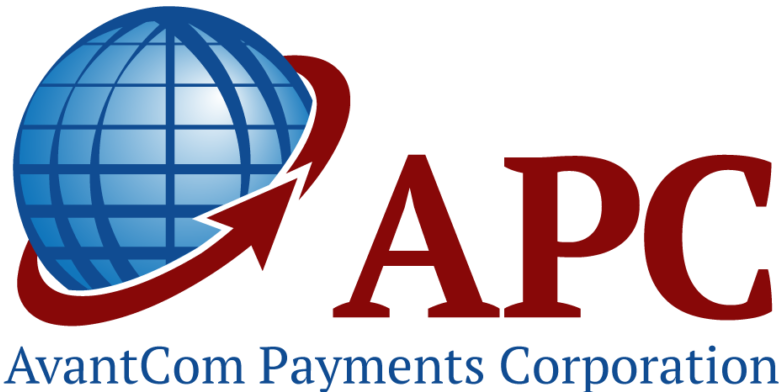
PCI DSS 4.0 replaced the anti-virus programs in 3.2.1
February 17, 2023
Tokenization in Oracle E-Business Suite
April 6, 2023Businesses are struggling with securing transactions due to the ever-changing landscape for fraud. The Nilson Report, which monitors the payments industry, released a forecast in December 2022 indicating that U.S. losses from card fraud will total $165.1 billion over the next 10 years, plaguing every age group in every state. Just one type of credit card fraud — card-not-present fraud, which involves online, over-the-phone and mail-order transactions — accounted for an estimated $5.72 billion in U.S. losses in 2022, according to Insider Intelligence.
Criminals and bad actors are constantly changing and refining tactics to exploit weakness and vulnerabilities which makes fraud prevention and online payment security complex. Point-to-Point Encryption (P2PE) and Hosted Order Pages Solutions help secure and protect your data while reducing time and money on overall PCI DSS (PCI Data Security Standard) compliance efforts.
What is Point-to-Point Encryption (P2PE)?
Point-to-Point Encryption (P2PE) is an encryption standard established by the Payment Card Industry (PCI) Security Standards Council. It requires that payment card data be encrypted immediately upon use with the merchant’s point-of-sale terminal and cannot be decrypted until securely transported to and processed by the payment processor.
A PCI-validated P2PE solution includes a combination of secure devices, applications, and processes that encrypt data from the point of interaction (POI) — for example, at the point of swipe or dip in the terminal—until the data reaches the solution provider’s secure decryption environment. If malicious activity is detected, the device is disabled, preventing a breach at the point of entry or POI device.
How Point-to-Point Encryption (P2PE) works?
AvantCom Payments and partners introduce a validated PCI Point-to-Point Encryption (P2PE) standard-based solution for securing Oracle EBS call center operations. This solution encrypts cardholder data at the point of interaction using a PCI-approved P2PE device.
Transactions are processed by the gateway platform, and decryption is performed off-site in an approved Hardware Security Module (HSM). By deploying this solution, you can remove clear-text cardholder data within your call center and reduce the payment security risk posed by hackers and malware. Protecting your systems against such potential threats helps you safeguard your brand reputation in the event of a breach.
What are the Benefits of P2PE?
- Better Security
- Easier PCI Compliance
What is a Hosted Payments Page?
Another way to let your customers shop securely is through a Hosted Payments Page.
Hosted Payments Pages or a hosted payment gateway, is a page that is located outside of your merchant website, which allows your customers to pay for their products. It is a third-party web page that allows ecommerce merchants to securely accept payments. These pages link to an ecommerce website via a secure payment gateway that outsources the online payment process and associated PCI compliance requirements.
How do Hosted Payments Pages Work?
Even though a Hosted Payments Page may look like it is part of the merchant’s website, it is not. It is hosted by the payments company, and sensitive payment data is never entered into or stored on the merchant’s system. Generally, there are three types of hosted payments: plug-ins, iframe, and Hosted Payments Pages. All are supported by a hosted payment gateway but for this example we will focus on hosted order page.
The consumer clicks the checkout button on merchant website or another button and is redirected to a Hosted Payments Page. This page is customizable to look like the merchant website with logo and the same look and feel. The consumer (or customer care agent, if used in a call center setting) inputs their data, and the transaction is completed without any of their data passing through the merchant website directly. This online payment solution protects sensitive payment information while offering a frictionless checkout experience for merchants and customers alike.
What are the Benefits of Hosted Payment Pages?
- Multiple ways to pay – support different payment method options for your customers, such as credit cards, debit cards, mobile wallets, and automated clearing house (ACH) payments. A high-quality payment page should also be adaptable to support emerging payment solutions.
- Simple checkout – With the right partner, integrations can be made simple and help you and your organization. The hosted payment page can easily be integrated with your website from the beginning, giving your customers a frictionless experience since most payment gateways have standard checkout pages.
- Easy setup for recurring billing and subscriptions -If you’re interested in getting into subscriptions or you already have a subscription offering, Hosted Payment Pages can help streamline your recurring billing operations
- Enhanced security – It allows your customers to put in their information on a secure payment site versus having information pass directly to through your site.
Conclusion
With the increase in online shopping, as well as the increase in digital and contactless payments, security is vital for merchants to thwart cybercrime and threats to retailers accepting payment cards. Hosted payment pages, and Point-to-Point Encryption may be a new thing to many that are looking to get started with their ecommerce business; using either option will reduce PCI scope while making the checkout process seamless for consumer. With a partner like AvantCom Payments Corporation (APC), you can use one or both solutions in combination to secure your data and streamline your checkout process. Contact us today to get a solution designed to meet your security needs.



